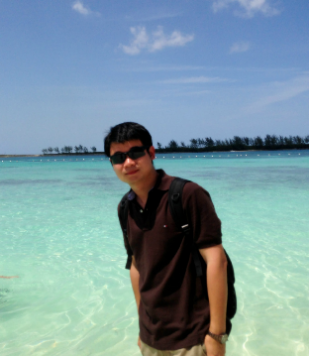During the outbreak of COVID-19, my courses during the spring semester were all switched to an online–teaching platform that I was unfamiliar with. After trial and error, I have come up with teaching strategy adjustments that can be made on the following 3 different levels to help teachers construct the virtual classroom setting.
First Level: Incorporation of life experiences
The Cross-Cultural Communications course is offered to undergraduates of the College of Media and International Culture of Zhejiang University and is attended by mainly Japanese and South-Korean students. Sometimes I would include interactions that require seeing students on camera, but chances were that they would not be ready because the course started at 8 a.m. and they had probably been lying in bed during the whole time. From this, we can tell that there are many daily distractions that may hinder them from focusing. However, these so-called distractions are inevitable if one is studying at home.
This reminds me of Tao Xingzhi’s education principle inspired by John Dewey, that is, life is education. This principle is totally applicable to the circumstance we face now. During the course, I throwed questions on things related to students’ everyday life. For example, three books they have on hand, their family activities, their cultural traits, etc. It is important to take note of the cross-cultural elements in the information they provide. If possible, parents of students may even join in to share their thoughts on globalization, which serves as excellent materials for course discussions.
Second Level:Breaking the stereotypical classroom
Traditional classroom layouts essentially consist of rows of students facing a lecturer. In general, students who sit closer to the lecturer focus better than those who sit farther away.
Many would assume that online classes would be unruly as the lecturer cannot see the students. However, the virtual classroom has made the atmosphere more dynamic because the classroom distance is eliminated. Every student enjoys equal rights to voice his or her own opinion and be “heard” immediately in group chats. Therefore, teachers can adjust their teaching style and speed accordingly to reach maximum results.
This equalization of relationships both between teachers and students and among students has created a level playing field for everyone to speak.
Third Level:Demonstration of the interdependent teacher-student relationship
In normal situations, many teachers set up course group chats on WeChat and QQ for communication purposes. Yet, students generally do not discuss in group chats when attending an actual lecture, separating the two components from each other. Livestreaming courses are different in a way that it is a two-in-one platform both for students to showcase their abilities and to improve teacher-student relationships.
During the period when the epidemic severely hit South Korea, I would encourage my students every time before I started my lecture. Once, I had an internet problem before class and had forgotten to carry out my “routine”, so I sent a text message to the students after class. Surprisingly, I received a message from one of my former South Korean students saying that they were really touched by it, so someone translated the text into Korean and reposted it among their community. Had I known that they would share the message, I would have written it in a more formal way.
Livestreaming lectures is a new experience for me, but it has made the Cross-Cultural Communications course this semester the most successful one I have ever taught. In my opinion, cross-cultural communication is a realization of the ideology of “community with a shared future for mankind”, while online class is an opportunity to reshape and redefine the teacher-student relationship.
About the author
Lin Wei is an associate professor at the College of Media and International Culture of Zhejiang University. He earned his doctorate degree, master’s degree and two bachelor’s degrees from Beijing Normal University. Professor Lin had also done his research at Duke University and Shih Hsin University.


